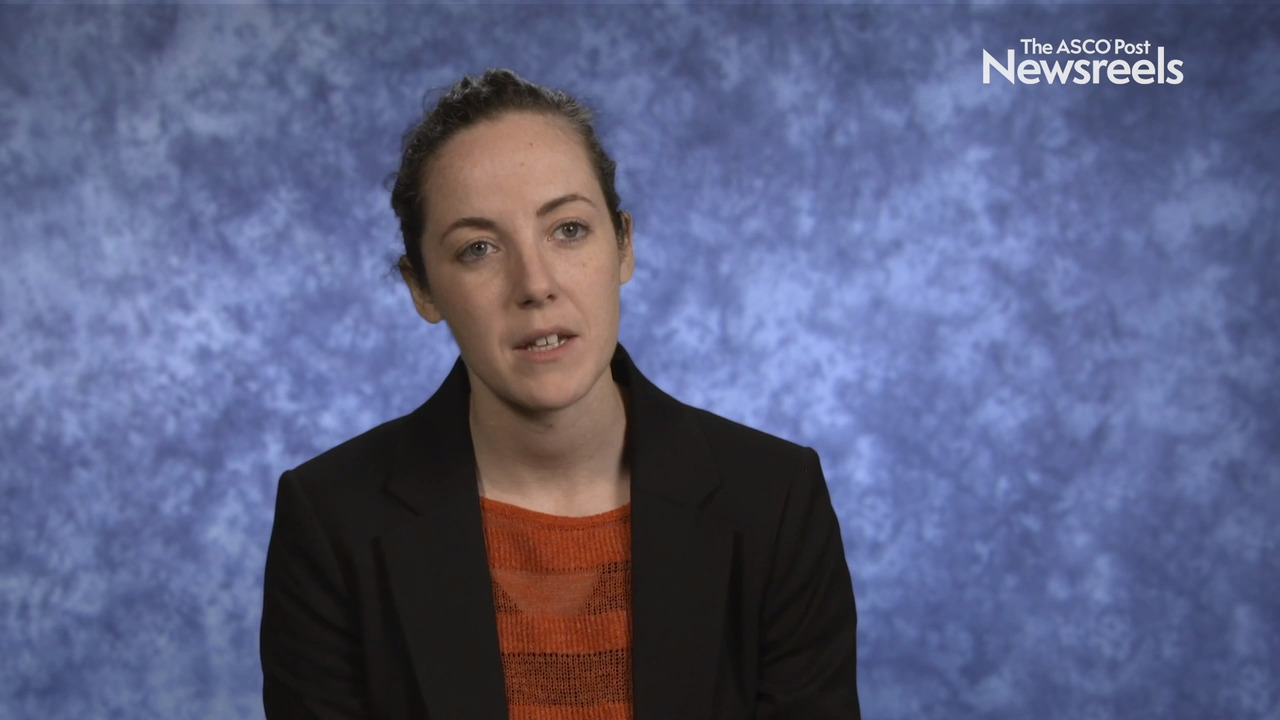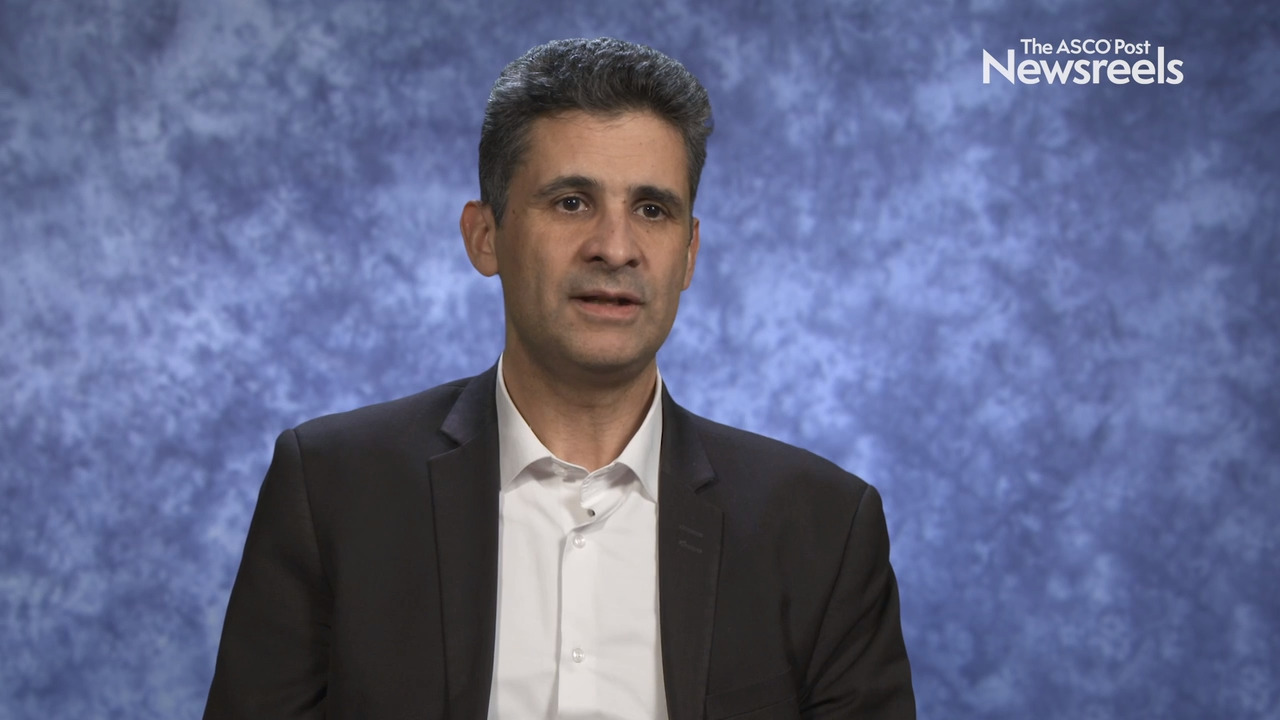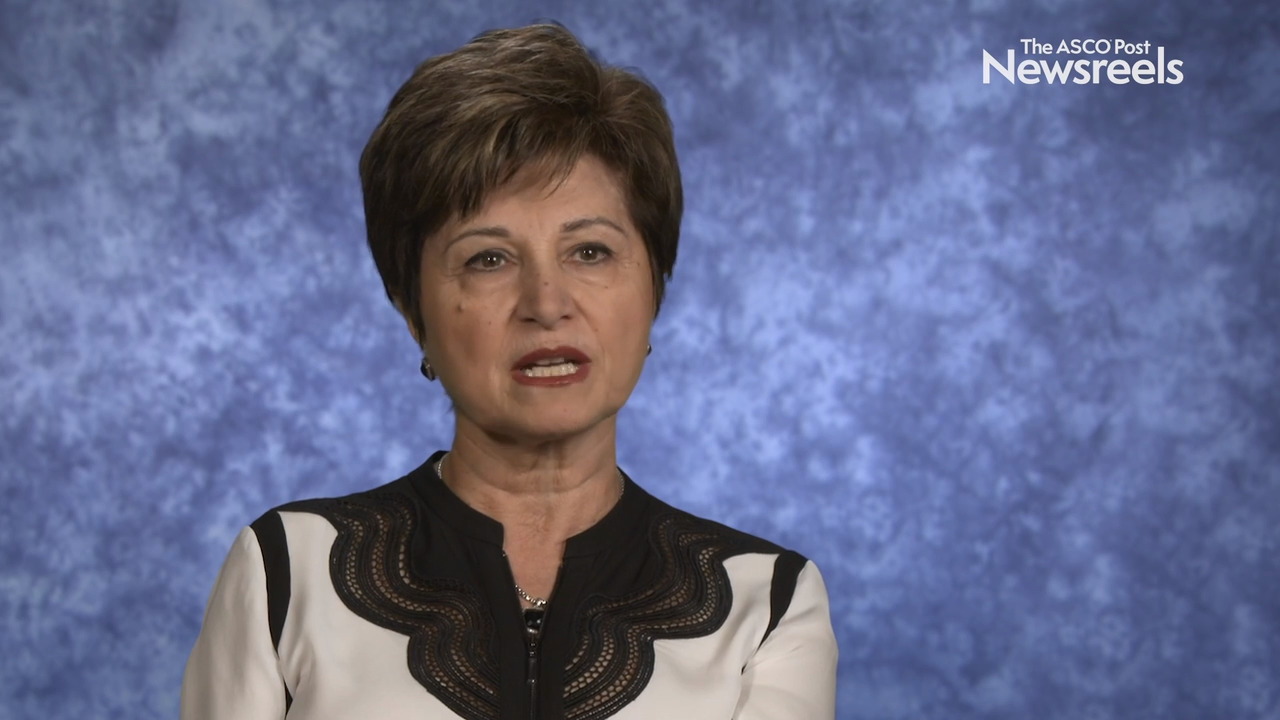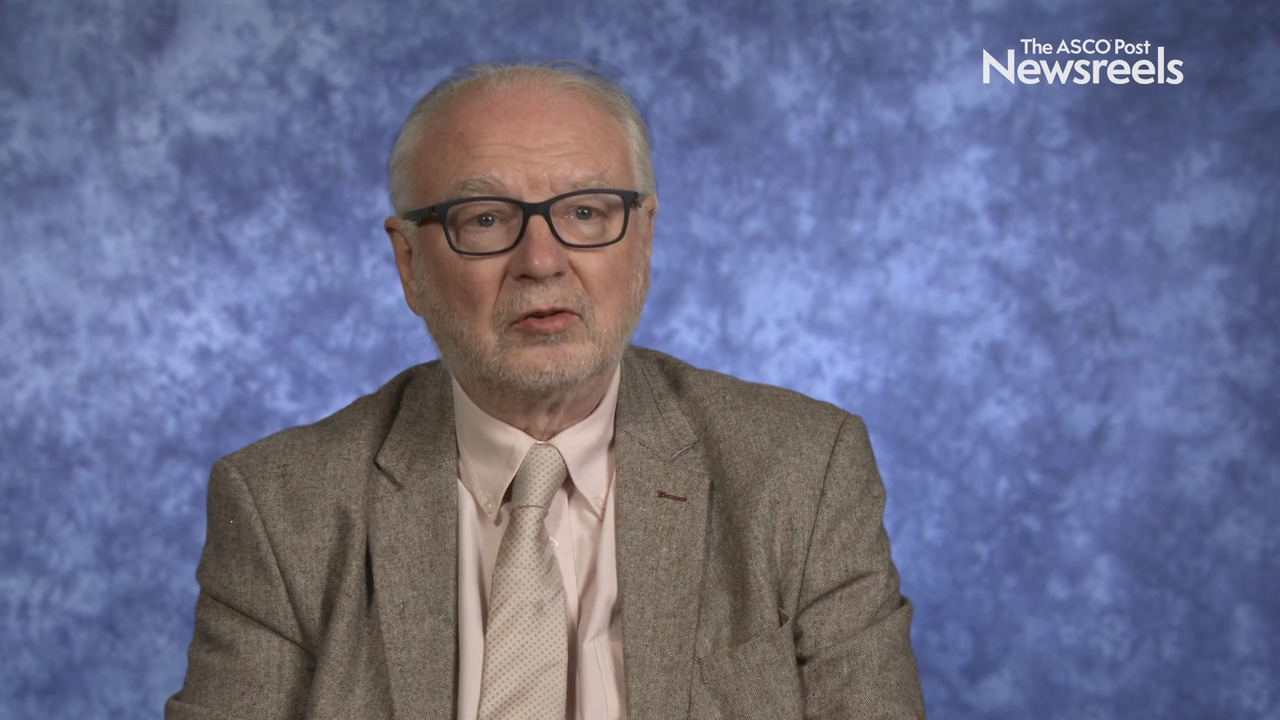Do Men Treated With ADT for Prostate Cancer Have a Lower Risk of Acquiring COVID-19?
A study of 4,532 men in the Veneto region of Italy has found that those who were being treated for prostate cancer with androgen-deprivation therapies (ADT) were less likely to develop COVID-19, and if they were infected, their disease tended to be less severe. This research was published by...
FDA Approves Olaparib for HRR Gene–Mutated Metastatic Castration-Resistant Prostate Cancer
On May 19, the U.S. Food and Drug Administration (FDA) approved olaparib (Lynparza) for adult patients with deleterious or suspected deleterious germline or somatic homologous recombination repair (HRR) gene–mutated metastatic castration-resistant prostate cancer who have had disease progression...
Can Pain After Prostatectomy or Nephrectomy Be Managed Without Opioids?
The use of opioids continues to be major issue facing patients with cancer in the United States. Most patients undergoing prostate and kidney removal may be managed effectively without opioids during the postoperative period, according to new data from researchers in Pittsburgh highlighted during a ...
Overall Survival With the Addition of ADT or Brachytherapy Boost to External-Beam Radiotherapy in Patients With Localized Prostate Cancer
In a study reported in the Journal of Clinical Oncology, Jackson et al found that the common practice of omitting androgen-deprivation therapy (ADT) from treatment with external-beam radiotherapy (EBRT) plus a brachytherapy boost (BT) may be associated with poorer overall survival in men with...
FDA Approves Rucaparib in BRCA-Mutated Metastatic Castration-Resistant Prostate Cancer
On May 15, the U.S. Food and Drug Administration (FDA) granted accelerated approval to rucaparib (Rubraca) for patients with deleterious BRCA mutation (germline and/or somatic)-associated metastatic castration-resistant prostate cancer who have been treated with androgen receptor–directed therapy...
PROfound Trial: Olaparib for Patients With Metastatic Castration-Resistant Prostate Cancer and Homologous Recombination Repair Gene Alterations
In a phase III trial reported in The New England Journal of Medicine, Johann de Bono, MB, ChB, PhD, and colleagues found that olaparib significantly improved progression-free survival vs hormonal therapy in patients with metastatic castration-resistant prostate cancer who had alterations in the...
Expert Point of View: Dana E. Rathkopf, MD
Study discussant Dana E. Rathkopf, MD, Director of Clinical Research, Prostate Cancer, at Memorial Sloan Kettering Cancer Center, New York, began her presentation by noting that the “complicated” landscape of metastatic prostate cancer can be approached like a chess game. She used a chess analogy...
Upfront Apalutamide Delays Time to Second Progression in Metastatic Castration-Sensitive Prostate Cancer
The addition of apalutamide to androgen-deprivation therapy (ADT) reduced the risk of second disease progression or death (PFS2) by 34% vs ADT alone in patients with metastatic castration-sensitive prostate cancer, in a post hoc analysis of the phase III TITAN trial presented at the 2020...
Statins With or Without Metformin Are Associated With Increased Survival in Patients With High‑Risk Prostate Cancer
A population-based retrospective cohort study involving 12,700 patients found that men with high-risk prostate cancer who took a statin alone or in combination with metformin had reduced all-cause and prostate cancer–specific mortality. The associations between the medications and reduced...
PSA Dynamics and Response to Androgen-Deprivation Therapy
Adaptive treatments based on evolutionary principles may be an effective approach to prostate cancer treatment by preventing the development of drug resistance and prolonging patient survival. In an article in Nature Communications, Brady-Nicholls et al provided a closer look at a model and data...
Postdiagnosis Weight and Mortality in Survivors of Nonmetastatic Prostate Cancer
In a study reported in the Journal of Clinical Oncology, Troeschel et al found that postdiagnosis obesity was associated with higher cardiovascular disease mortality and all-cause mortality, and postdiagnosis weight gain was associated with higher all-cause and prostate cancer–specific mortality in ...
T-Cell Responses and Benefit From Treatment With Ipilimumab in Patients With Metastatic Castration-Resistant Prostate Cancer
Although patients with metastatic castration-resistant prostate cancer typically have limited responses to immunotherapy, a subset of patients with pretreatment evidence of active T-cell responses in their tumors experienced prolonged survival following treatment with ipilimumab in a phase II...
PSA Levels Before Salvage Radiotherapy and Outcomes With Long-Term Antiandrogen Therapy in Prostate Cancer
In an analysis from the NRG/RTOG 9601 trial reported in JAMA Oncology, Daniel E. Spratt, MD, and colleagues found that higher prostate-specific antigen (PSA) pre–salvage radiotherapy (SRT) levels after prostatectomy were associated with better overall survival vs lower levels in men with prostate...
Brief Highlights on Novel Therapies for Prostate, Bladder, and Kidney Cancers
Attendees gathered at the 2020 Genitourinary Cancers Symposium in San Francisco to hear the latest news about treating patients with cancers of the prostate, bladder, kidneys, and testicles. In addition to the comprehensive coverage of the meeting in The ASCO Post, here are some brief highlights...
Stereotactic Ablative Radiation vs Observation in Oligometastatic Prostate Cancer: ORIOLE Trial
In a phase II trial reported in JAMA Oncology, Phillips et al found that stereotactic ablative radiotherapy (SABR) was associated with improved outcomes vs observation in men with oligometastatic prostate cancer. The benefit was augmented in patients with total consolidation of disease identified...
Gallium-68 PSMA PET/CT Prior to Surgery or Radiotherapy in High-Risk Prostate Cancer
In an Australian phase III trial (proPSMA) reported in The Lancet, Michael S. Hofman, MBBS, and colleagues found that gallium-68 prostate-specific membrane antigen-11 positron-emission tomography/computed tomography (PSMA PET/CT) provided greater accuracy in identifying nodal and distant metastases ...
Effect of Familial and Hereditary Cancer Syndromes on Risk of Prostate Cancer
In a study reported in the Journal of Clinical Oncology, Jennifer L. Beebe-Dimmer, MPH, PhD, and colleagues found that risk of prostate cancer varied according to cancer family history, with the strongest association being observed between family history and early-onset prostate cancer. Study...
Patients With Certain Cancers May Be at a Higher Risk for Atrial Fibrillation
People with a history of cancer have an over twofold risk of developing atrial fibrillation, the most common heart rhythm disorder, compared to the general population, according to research presented at the American College of Cardiology’s Annual Scientific Session (Abstract 1216-235). In...
Expert Point of View: Charles G. Drake, MD, PhD
“This is a great study. It is one of the largest series of prostate-specific membrane antigen (PSMA) scans and covers many patient scenarios, including initial staging, restaging after surgery or radiation or hormonal therapy, and re-imaging in advanced disease,” said Charles G. Drake, MD, PhD, a...
PSMA PET/CT May Have Major Impact on Treatment of Patients With Prostate Cancer
Prostate cancer experts speaking at the 2020 Genitourinary Cancers Symposium alluded to the fact that prostate-specific membrane antigen (PSMA) positron-emission tomography (PET)/computed tomography (CT) scanning is more sensitive than conventional imaging for the detection of occult lesions in men ...
Conventionally Fractionated vs Moderate Hypofractionated Radiation Therapy for Localized Prostate Cancer: Long-Term Update
As reported in the Journal of Clinical Oncology by Avkshtol et al, the 10-year update of a single-center trial has confirmed the primary analysis of the study, showing no superiority in 5-year biochemical and/or clinical disease failure rate with moderate hypofractionated intensity-modulated...
Association of Genomic Prostate Score With Adverse Pathology at Radical Prostatectomy After Initial Active Surveillance
In a study reported in the Journal of Clinical Oncology, Daniel W. Lin, MD, and colleagues found that the 17-gene Oncotype DX Genomic Prostate Score was not associated with the finding of adverse pathology among men with prostate cancer undergoing radical prostatectomy after initial active...
Evaluation of Different Methods of Biopsy for the Diagnosis of Prostate Cancer
In a study reported in The New England Journal of Medicine, Ahdoot et al found that combined use of magnetic resonance imaging (MRI)-targeted biopsy and 12-core systematic prostate biopsy led to enhanced detection of prostate cancers vs either approach alone in men with MRI-visible prostate...
Expert Point of View: Charles G. Drake, MD, PhD
In an interview with The ASCO Post, Charles G. Drake, MD, PhD, expounded on the results of the COSMIC-021 trial. Dr. Drake is Division Director for GU Oncology, Co-Director of the Cancer Immunotherapy Program, and Co-Leader of the Tumor Biology and Microenvironment Program at the Herbert Irving...
Novel Combination of Cabozantinib Plus Atezolizumab Shows Benefit in Patients With Advanced Prostate Cancer
The combination of the small-molecule tyrosine kinase inhibitor cabozantinib (inhibits VEGF, AXL, MET, and others), plus the immune checkpoint inhibitor atezolizumab achieved encouraging activity in patients with metastatic castration-resistant prostate cancer, according to the results of...
Phenelzine for Biochemical Recurrent Castration-Sensitive Prostate Cancer
A monoamine oxidase A (MAOA) inhibitor in use for decades as an antidepressant demonstrated activity in patients with recurrent prostate cancer, with most toxicities seen with the treatment being reported as mild. These findings were published by Gross et al in Prostate Cancer and Prostatic...
New Guideline Tackles Rapidly Evolving Imaging Strategies for Advanced Prostate Cancer
Advances in radiology and molecular imaging have the potential to significantly change how clinicians diagnose, stage, and monitor response to therapy in patients with prostate cancer. However, there are limited data comparing these next-generation imaging modalities to each other and to...
ASCO Endorses Cancer Care Ontario Guideline on Bone Health and Bone-Targeted Therapies for Prostate Cancer
ASCO recently endorsed the Cancer Care Ontario (CCO) guideline “Bone Health and Bone-Targeted Therapies for Prostate Cancer,” which was originally approved by CCO in 2017.1 The recommendations were based on a systematic review and meta-analysis of relevant research and clinical trial reports...
PSA-Stratified Screening for Prostate Cancer
Previous studies have shown that men with low prostate-specific antigen (PSA) levels (< 1.0 ng/mL) between ages 44 to 60 have a very low risk of developing prostate cancer in the future. A study published by Heijnsdijk et al in JNCI: Journal of the National Cancer Institute investigated benefits ...
Nicholas D. James, PhD, MBBS, on Adding Abiraterone to Hormone Therapy in Prostate Cancer: STAMPEDE Trial on Cost-Effectiveness
Nicholas D. James, PhD, MBBS, of The Institute of Cancer Research in London, discusses the health economics of adding abiraterone to first-line, long-term hormone therapy in prostate cancer, and what it means for long-term survival, quality-adjusted survival, and cost-effectiveness (Abstract 204).
Hannah L. Rush, MBChB, on Prostate Cancer: Comparing Quality of Life in Patients Receiving Docetaxel or Abiraterone
Hannah L. Rush, MBChB, of the Clinical Trials Unit at University College London, discusses an analysis of the STAMPEDE trial, which showed that patients treated with abiraterone had higher scores in global quality of life as well as in the physical, social, and role function domains and lower scores for pain and fatigue over the first 2 years than those receiving docetaxel (Abstract 14).
Karim Fizazi, MD, PhD, on Prostate Cancer: Pain and Quality of Life in Patients Receiving Cabazitaxel vs Abiraterone or Enzalutamide
Karim Fizazi, MD, PhD, of the Institut Gustave Roussy, discusses results from the CARD study, which showed that cabazitaxel improved pain, time to pain progression, and symptomatic skeletal events, as well as quality of life in patients with metastatic castration-resistant prostate cancer. The findings support the use of this agent as a standard of care (Abstract 16).
Maha Hussain, MD, on Next-Generation Sequencing of Prostate Tumor Tissue: Results From the PROfound Study
Maha Hussain, MD, of the Robert H. Lurie Comprehensive Cancer Center of Northwestern University, discusses the first phase III clinical trial to demonstrate the feasibility of tissue-based genomic testing to preselect men with metastatic castration-resistant prostate cancer for targeted treatment and the superiority of the PARP inhibitor olaparib compared to enzalutamide or abiraterone (Abstract 195).
Neeraj Agarwal, MD, on Castration-Resistant Prostate Cancer: Results From the COSMIC-021 Study of Cabozantinib and Atezolizumab
Neeraj Agarwal, MD, of the University of Utah Huntsman Cancer Institute, discusses trial findings that showed the combination of cabozantinib and atezolizumab had a tolerable safety profile and showed activity in men with metastatic disease. Further evaluation of cabozantinib and atezolizumab is planned in a phase III trial (Abstract 82).
David P. Dearnaley, MD, on Prostate Cancer: Conventional vs Hypofractionated High-Dose Radiotherapy
David P. Dearnaley, MD, of The Institute of Cancer Research and Royal Marsden NHS Foundation Trust, discusses 8-year outcomes of the phase III CHHiP trial, which showed that modest hypofractionation is noninferior to conventional fractionation in localized prostate cancer, with no increase in side effects. Disease control was also reported in patients older than age 75 (Abstract 325).
Julie N. Graff, MD, on Castration-Resistant Prostate Cancer: Results From KEYNOTE-199 on Pembrolizumab Plus Enzalutamide
Julie N. Graff, MD, of Oregon Health & Science University and Knight Cancer Institute, discusses study findings that show pembrolizumab plus enzalutamide after progression on enzalutamide produced clinical activity and can lead to durable responses, with a manageable safety profile. The phase III KEYNOTE-641 trial will test patients who are enzalutamide-naive (Abstract 15).
HSD3B1 Genotype and Its Effect on Castration Resistance and Overall Survival in Prostate Cancer
As reported in JAMA Oncology, Nima Sharifi, MD, and colleagues have found that the adrenal-permissive HSD3B1 genotype is associated with earlier onset of castration resistance and poorer overall survival in men with low-volume metastatic prostate cancer. As noted by the investigators, the...
2020 GU Cancers Symposium: Talazoparib for Pretreated Patients With Metastatic Castration-Resistant Prostate Cancer
According to results from a phase II trial presented by Johann S. de Bono, MD, PhD, and colleagues at the 2020 Genitourinary (GU) Cancers Symposium (Abstract 119), treatment with the poly (ADP-ribose) polymerase (PARP) inhibitor talazoparib showed antitumor activity in patients with metastatic...
2020 GU Cancers Symposium: Fear of Recurrence, Patients’ Prognostic Understanding Examined in Genitourinary Cancers
In studies to be presented at the 2020 Genitourinary Cancers Symposium (Abstracts 649 and 665), researchers examined the prevalence of fear of cancer recurrence in patients with renal cell carcinoma and evaluated the prognostic understanding patients with genitourinary cancer possess of their...
Five-Year Patient-Reported Outcomes for Various Prostate Cancer Treatments
A 5-year follow-up study of more than 2,000 U.S. men who received prostate cancer treatment—radiation, surgery, or active surveillance—in patients of all ages and ethnicities is creating a road map for the future regarding long-term bowel, bladder, and sexual function in order to clarify...
Novel Guideline Addresses the Clinical Utility of Molecular Biomarkers in Localized Prostate Cancer
In men, prostate cancer has the highest incidence of any neoplasm and is the second-leading cause of cancer-related mortality. A plethora of tissue-based biomarkers are available to inform the diagnosis and prognosis for men with newly diagnosed, clinically localized prostate cancer. However, to...
Equal-Access Health-Care System for African American and White Men With Prostate Cancer
Among men with prostate cancer who received care from the U.S. Department of Veterans Affairs (VA) Health System, an equal-access health-care system, African American men did not have more advanced disease at the time of diagnosis or die earlier than white men, unlike trends seen in the greater...
FDA Pipeline: Priority Reviews in Multiple Myeloma, Prostate Cancer
Over the past week, the U.S. Food and Drug Administration (FDA) granted Priority Review to treatments for multiple myeloma and prostate cancer; gave Fast Track designation to a targeted gene therapy for lung cancer; granted Orphan Drug designation to a combination therapy for hepatocellular...
Olaparib for Previously Treated, Metastatic Castration-Resistant Prostate Cancer With DNA Repair Gene Aberrations
In the phase II TOPARP-B trial—reported by Joaquin Mateo, MD, in The Lancet Oncology—investigators found that olaparib showed good activity in men with metastatic castration-resistant prostate cancer and DNA damage response (DDR) gene aberrations who had received one or two prior taxane regimens....
Enzalutamide for Metastatic Castration-Sensitive Prostate Cancer
On December 16, 2019, enzalutamide (Xtandi) was approved for the treatment of patients with metastatic castration-sensitive prostate cancer.1,2 Supporting Efficacy Data The current approval was based on findings from the phase III double-blind ARCHES trial (ClinicalTrials.gov identifier...
Price Transparency and Variation for Prostate Cancer Radiation Therapy
In a study reported in JAMA Oncology, Trevor Royce, MS, MD, MPH, and colleagues found that publicly available information on pricing for radiation treatment for prostate cancer was complex and inconsistent, and that pricing varied widely among National Cancer Institute (NCI)-designated cancer...
Cancer Incidence in World Trade Center Responders to the September 11 Attacks
A study published by Shapiro et al in JNCI Cancer Spectrum showed that responders to the World Trade Center site after the attacks on September 11, 2001, have statistically significant elevations in cancer incidence for all cancer sites combined, and for prostate and thyroid cancer and leukemia....
FDA Pipeline: Priority Reviews in Ovarian Cancer, Prostate Cancer, and NSCLC
This week, the U.S. Food and Drug Administration (FDA) granted Priority Review to treatments for ovarian, prostate, and lung cancer; granted Orphan Drug designation to therapies for chemotherapy-induced thrombocytopenia and multiple myeloma; and granted Breakthrough Device designation to platforms...
Use of Artificial Intelligence for Diagnosing and Grading Prostate Cancer
Researchers have developed a method based on artificial intelligence (AI) for the histopathologic diagnosis and grading of prostate cancer. The study, published by Ström et al in The Lancet Oncology, showed that the AI system can be trained to detect and grade prostate cancer from needle biopsy...
Patient-Reported Functional Outcomes With Hypofractionated vs Conventionally Fractionated Radiotherapy for Nonmetastatic Prostate Cancer
In a national cohort study conducted in the United Kingdom and reported in the Journal of Clinical Oncology, Nossiter et al found no clinically important differences in patient-reported functional outcomes among men receiving hypofractionated vs conventionally fractionated radiotherapy for...







